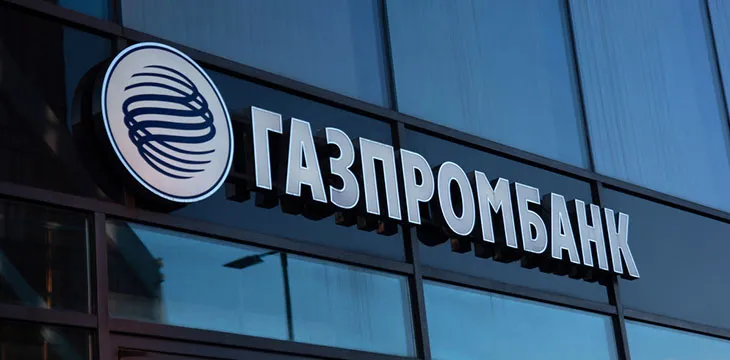|
Getting your Trinity Audio player ready...
|
Gazprombank, Russia’s third largest bank by assets, has warned that commercial banks could face large losses following the launch of a central bank digital currency (CBDC).
Gazprombank, a partner in the Bank of Russia’s digital ruble pilot, urged financial institutions to approach the CBDC cautiously to avoid financial losses. The digital ruble has received heightened attention as the government intends to use it to circumvent economic sanctions imposed on it since the start of the armed conflict with Ukraine.
“It is imperative that banks take measures to mitigate potential losses. Hence, it is crucial to recognize the potential risks associated with the transition to a digital ruble and approach its implementation with caution, allowing the financial system sufficient time to adjust,” a statement from Gazprombank read.
Consulting company Yakov and Partners (formerly known as Mckinsey) stated that commercial banks could lose over $500 million each year after the launch of the CBDC. Yakov and Partners noted that the biggest winners following the launch of the digital ruble would be retailers, with the firm predicting gains of over $1 billion annually.
“Obviously, banks will have to somehow minimize their losses. Therefore, it is very important to take into account these risks and move towards the launch of the digital ruble gradually in order to give the financial system enough time to adapt,” the bank said.
Despite the flak raised by Gazprombank, Russia’s central bank maintains that it will go ahead with the digital ruble plans given its array of benefits. Russia’s central bank points out that the digital ruble will improve the transparency of the local financial system while its potential use in cross-border payments will be a game-changer in its quest to evade and circumnavigate sanctions.
CBDCs or stablecoins for cross-border payments
Russia’s central bank appears to be deliberating two options for cross-border remittances—CBDCs or stablecoins. In 2022, the country’s Finance Ministry disclosed that it was engaging in discussions with its allies to create a stablecoin settlement platform.
“With a number of countries, we are currently working to create platforms that are bilateral and do not use dollars and euros,” Alexey Moiseev, Deputy Finance Minister, said. “We offer mutually acceptable tokenized instruments that will be used on these platforms, which are essentially clearing platforms that we are currently developing with countries.”
At the moment, it remains unclear which option Russian authorities will pursue for settling international transactions, but experts are leaning towards CBDCs following the central bank’s latest strategy presentation.
To learn more about central bank digital currencies and some of the design decisions that need to be considered when creating and launching it, read nChain’s CBDC playbook.
Watch: New Technologies, New Futures for Nations

 08-12-2025
08-12-2025 





